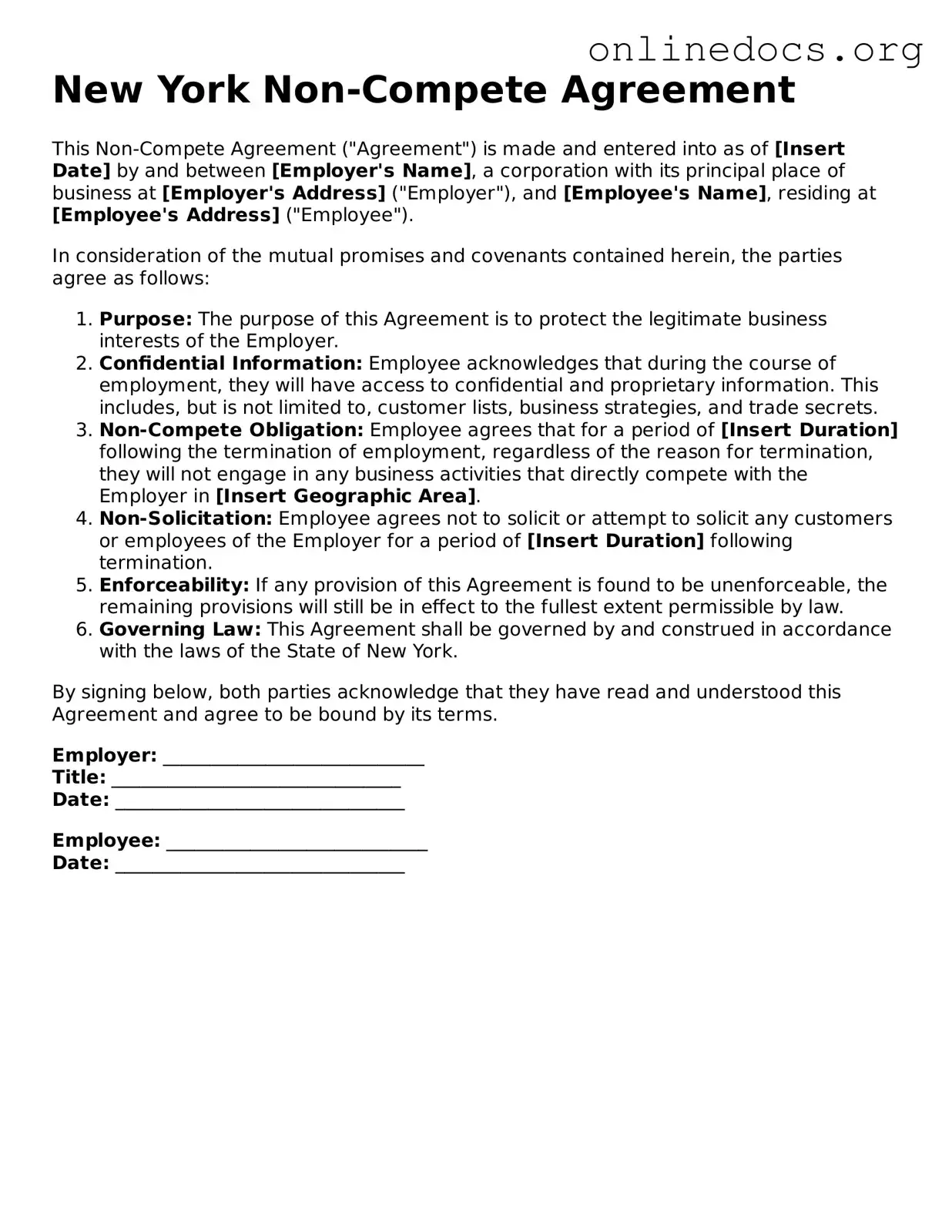The Non-disclosure Agreement (NDA) is similar to the Non-compete Agreement in that both documents protect sensitive information. An NDA prevents employees from sharing proprietary information with outsiders, while a Non-compete Agreement restricts them from working with competitors after leaving the company. Both agreements aim to safeguard a business's interests and trade secrets, ensuring that confidential information does not benefit competitors.
The Employment Contract is another document closely related to the Non-compete Agreement. This contract outlines the terms of employment, including job responsibilities, salary, and benefits. Often, it will incorporate a Non-compete clause, specifying the conditions under which an employee cannot engage in competing work after their tenure. Both documents serve to establish clear expectations between the employer and employee.
Confidentiality Agreements are also akin to Non-compete Agreements. These agreements focus on protecting confidential information that employees may encounter during their employment. While a Non-compete Agreement restricts future employment opportunities, a Confidentiality Agreement emphasizes the importance of keeping certain information private during and after employment. Both documents reinforce the significance of trust in the employer-employee relationship.
The Non-solicitation Agreement shares similarities with the Non-compete Agreement as well. This document prevents former employees from soliciting clients or employees from their previous employer. While the Non-compete Agreement restricts working for competitors, the Non-solicitation Agreement focuses on maintaining business relationships. Together, they help protect a company's interests in a competitive landscape.
To effectively launch your LLC, consider utilizing a vital resource like the operating agreement creation tool. This document provides essential frameworks for management and operations, ensuring clarity and structure within your business.
Independent Contractor Agreements can also resemble Non-compete Agreements, especially when they include clauses that limit a contractor's ability to work with competitors. These agreements define the relationship between a business and an independent contractor, detailing the scope of work and payment terms. When a Non-compete clause is included, it ensures that the contractor does not undermine the business by working with rivals.
Partnership Agreements may also contain elements similar to Non-compete Agreements. These documents outline the terms of a partnership, including roles, responsibilities, and profit-sharing. Often, they include clauses that prevent partners from starting competing businesses during and after the partnership. This ensures that all partners remain committed to the success of the venture without diverting their attention to rival enterprises.
Finally, the Severance Agreement can include a Non-compete clause. This agreement is typically offered when an employee is laid off or terminated, providing them with compensation in exchange for agreeing to certain terms. A Non-compete clause within a Severance Agreement helps protect the employer's interests by limiting the former employee's ability to work for competitors, ensuring a smoother transition for the business.
